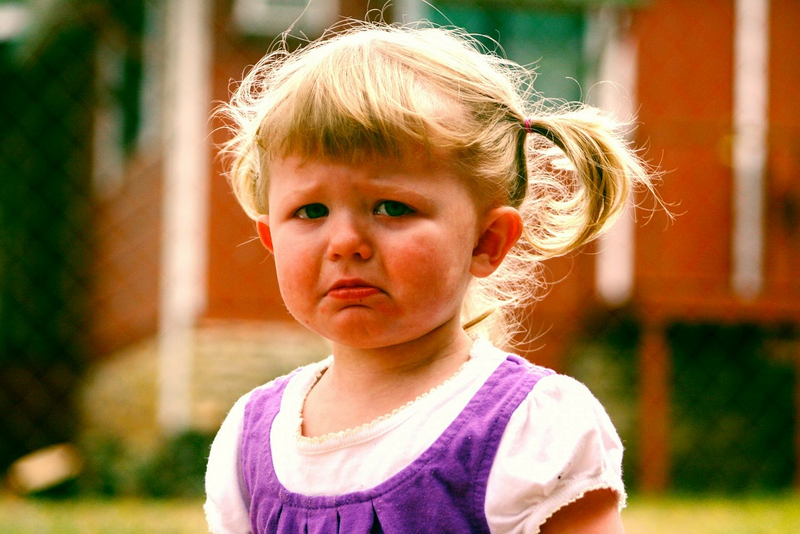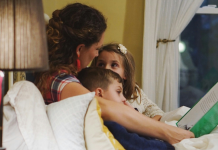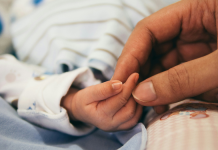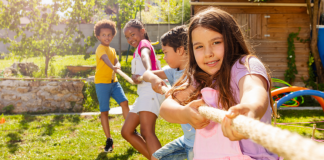My husband and I were discussing the details of a conflict between us and another party late one evening. I was vehemently expressing my feelings about the situation; he was doggedly trying to fix it and place everything in a neat little box. And then, out of nowhere, he blurted out, “People stink. Why does everything have to be so hard all the time?”
While that really isn’t our outlook on life, he has a valid point about relationships: they’re messy and they’re hard. It would be nice if everyone could walk through life, holding hands and singing “Kumbaya.” It would be nice if we respected each other and handled conflict perfectly and always put others’ needs before our own. It would be nice.
But that’s not how people are. We can all be jerks sometimes and it’s how we act in the “jerk” moments of life that define our relationships with others, especially with our kids.

Let’s be honest, our kids are probably going to be our biggest relationship challenges we will ever face. They will be the most outspoken, selfish human beings we will ever have to deal with on a daily, hourly, minute-by-minute, second-by-second basis. Yes, every stage of their life has beautiful and irreplaceable memories, but that same stage also comes with some wrinkle-inducing challenges.
Those cute little photos of a 4-year old cherub grinning innocently at the camera don’t tell the story of said 4-year old throwing himself on the floor and screaming because his blueberry fell on the floor.
The picture of your fabulous pool day shows two sisters in swimsuits, arms flung around each other’s shoulders and smiling. What it doesn’t show is one of them breaking down in tears because she didn’t see you get your hair wet after your first underwater dip.
There is some serious conflict from these little humans, and they are watching our every move to see how we handle each battle. Pastor Craig Groeschel once said, “We might impress people with our strengths, but we connect with people through our weaknesses.” And it is through these weaknesses that we not only strengthen our relationship with our kids but also help build a strong foundation for their future relationships.
No pressure.
Instead of buckling under the pressure, however, here are a few of the techniques I *try* to use in the midst of a meltdown:
Acknowledge Feelings and Redirect (When Appropriate)
Try to remember that children deserve the same respect and the right to their feelings as much as any other person. Even if your 4-year old is foaming at the mouth because you won’t let her drive the car, you can still acknowledge that she’s feeling disappointed and frustrated while also redirecting her to safer options. Sometimes authentically acknowledging another’s feelings, regardless of age, can go a long way to diffusing any situation. The authors of How to Talk so Kids Will Listen & Listen so Kids Will Talk post some great examples of this technique on their website.
Give a 20 Second Hug
At any age, children are experiencing all kinds of new feelings, hormones, thoughts, etc. They don’t know what to do with all of that internal junk until it erupts in a tantrum or meltdown. A 20-second hug can give your child time to calm down so you can eventually put into words what those feelings are. It’s a reminder to them that, yes, you do love them even when they’re having a bad day. Scientifically speaking, extended hugs also release oxytocin (the “love drug”) and lowers cortisol (the stress hormone).
Model Anger Management
The phrase “The apple doesn’t fall far from the tree” was invented for a reason, and I have definitely been appalled to see my daughter mimic my poor anger management practices. It is incredibly hard for me not to lose my temper when a little dictator is following me around and testing the limits of her control every minute of every day. I’ve learned that when I feel myself getting to the point of snapping, I tell my daughter I need a time-out to calm down (Seriously, thank you, Daniel Tiger). After the fact, I explain why I took a time-out, and we address the situation.
Apologize
Clearly, there are times where I forgot to take that time-out and just let my temper take over, and that’s when an apology is well-warranted. Aside from the fact that they deserve an apology if we wronged them, children also need to see that adults make mistakes and should be responsible enough to fix those mistakes. A great way to apologize might look like this: “I’m sorry I lost my temper and shouted at you. Next time, I’m going to take a time-out to calm down before talking about the problem.”
Ultimately, the most important thing to model for your kids is that we are all human, and we all make mistakes. It’s how we move past the mistakes that make the difference. What are the things you do to teach your children conflict resolution?













This is the first of your blogs that I have seen. I love it.
Thank you!!
Comments are closed.